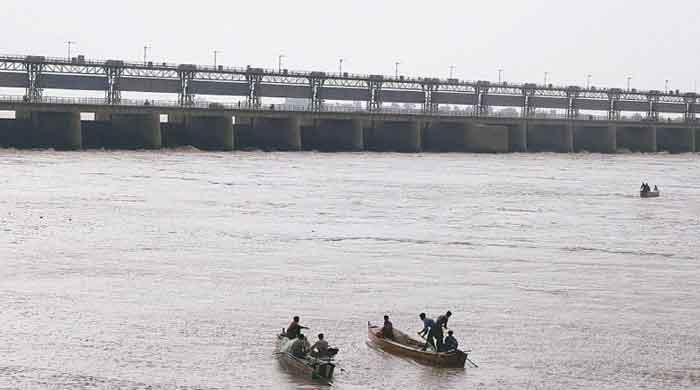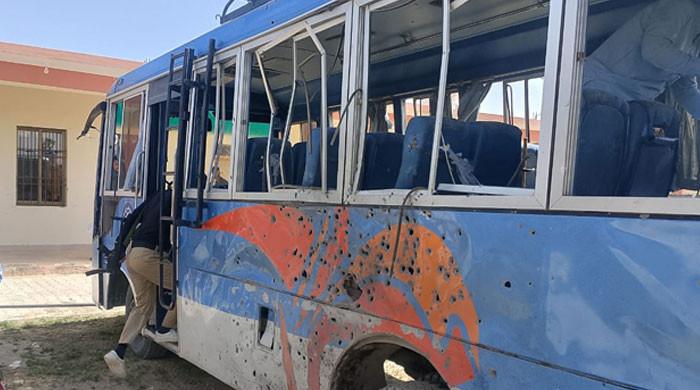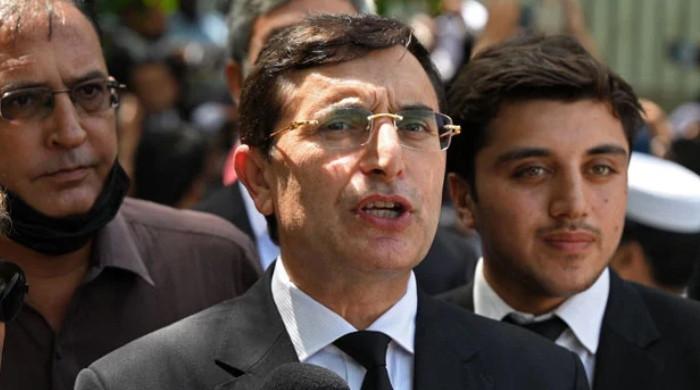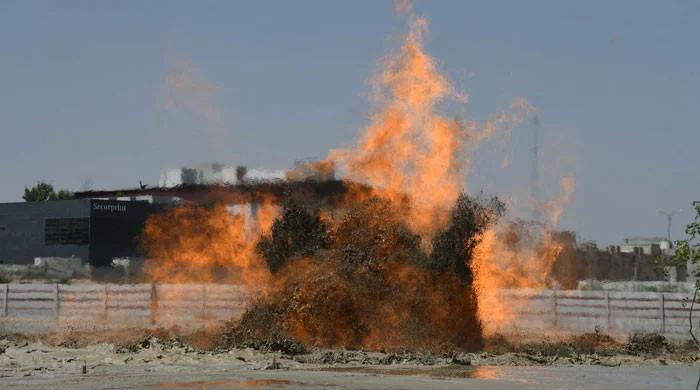BOP CEO Zafar Masud pledges to serve Pakistan after surviving PIA plane crash
PIA plane crash 'strengthened my resolve to work with more zeal and fervor for the welfare of all of you [employees],' says Masud
May 24, 2020
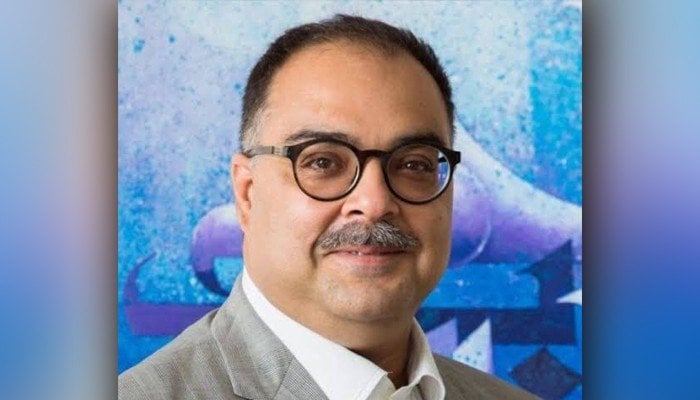
ISLAMABAD/KARACHI: Bank of Punjab Chief Executive Officer (CEO) Zafar Masud, who was among the only two survivors of Friday's PIA plane crash, has written a letter to his employees, vowing to work for their welfare and to serve Pakistan.
In his letter, Masud said: "This incident [PIA plane crash] has further strengthened my resolve to work with more zeal and fervor for the welfare of all of you. It is high time to make a pledge to continue caring about each other and work for the growth of our Bank."
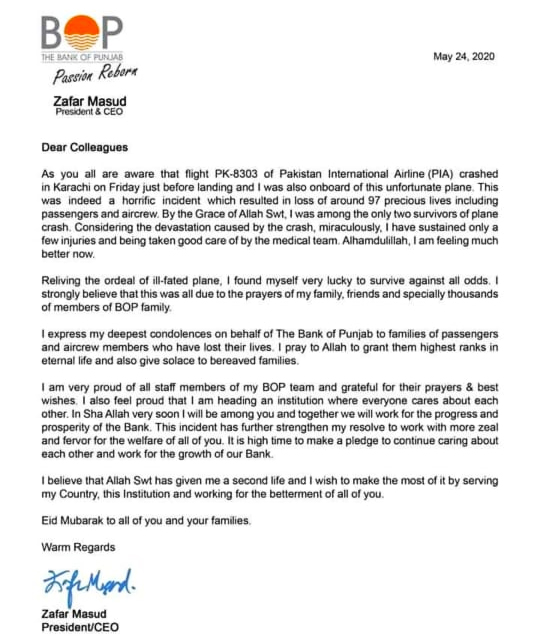
Thanking God for giving him a second chance at life, the CEO wrote: "I believe that Allah Swt has given me a second life and I wish to make the most of it by serving my country, this Institution, and working for the betterment of all of you."
PIA Flight PK-8303, an Airbus A320 jet that was carrying 99 people, had crashed Friday into Karachi's Model Colony — a crowded residential area — after twice attempting to land at the Jinnah International Airport.
The actual reason for the crash remains unknown as the investigations remain underway.
Read more: Sindh prohibits PFSA from taking DNA samples from PIA plane crash victims
Speaking of his health, Masud said he had "sustained only a few injuries" and that he would soon return and be among his employees to work for "progress and prosperity of the bank".
"This was indeed a horrific incident which resulted in the loss of around 97 precious live including passengers and aircrew," he said. "I express my deepest condolences on behalf of The Bank of Punjab to families of passengers and aircrew members who have lost their lives.
"I pray to Allah to grant them highest ranks in eternal life and also give solace to bereaved families," he added.
Masud believes that he was "lucky" to survive that plane crash and he credits his family and friends for their prayers.
Read more: The questions the investigation team needs to find answers of
"Reliving the ordeal of ill-fated plane, I found myself very lucky to survive against all odds. I strongly believe that this was all due to the prayers of my family, friends, and specially thousands of members of the BOP family," he said.
"I am very proud of all staff members of my BOP team and grateful for their prayers and best wishes. I also feel proud that I am heading an institution where everyone cares about each other," Masud wrote.
PIA plane crash preliminary raises questions
Air crash investigators are trying to figure out if the PIA flight PK-8303 crash incident is attributable to a pilot error or technical fault, with new information giving rise to fresh questions regarding the circumstances of the incident, according to a report in The News.
It is believed that a full report can be made public in three months.
Meanwhile, a preliminary report has raised questions about the pilot's handling of the incident and what prevented the cockpit from informing air traffic controllers at the Jinnah International Airport about the plane's troubles.
Read more: Aviation minister promises ‘transparent’ inquiry into PIA plane crash
According to the report, prepared by the Pakistan Civil Aviation Authority (CAA), the plane's engines had scraped the runway thrice on the pilot's first attempt to land the plane, causing friction and sparks.
Three long marks have been observed and recorded by the PCAA's experts on the runway. According to sources in the PCAA, the plane's engines first made contact with the ground at the 4,500-feet marker, followed a second time at the 5,500-feet marker, and a third time at the 7,000-feet marker.
However, although the engines touched the ground, the aircraft's belly at no point to make contact with the runway.
After the third impact, the pilot took the aircraft off into the air again, which officials found very strange as the cockpit did not inform air traffic control of any problem with the landing gear when it was already clear that it was the reason why it could not land properly.






